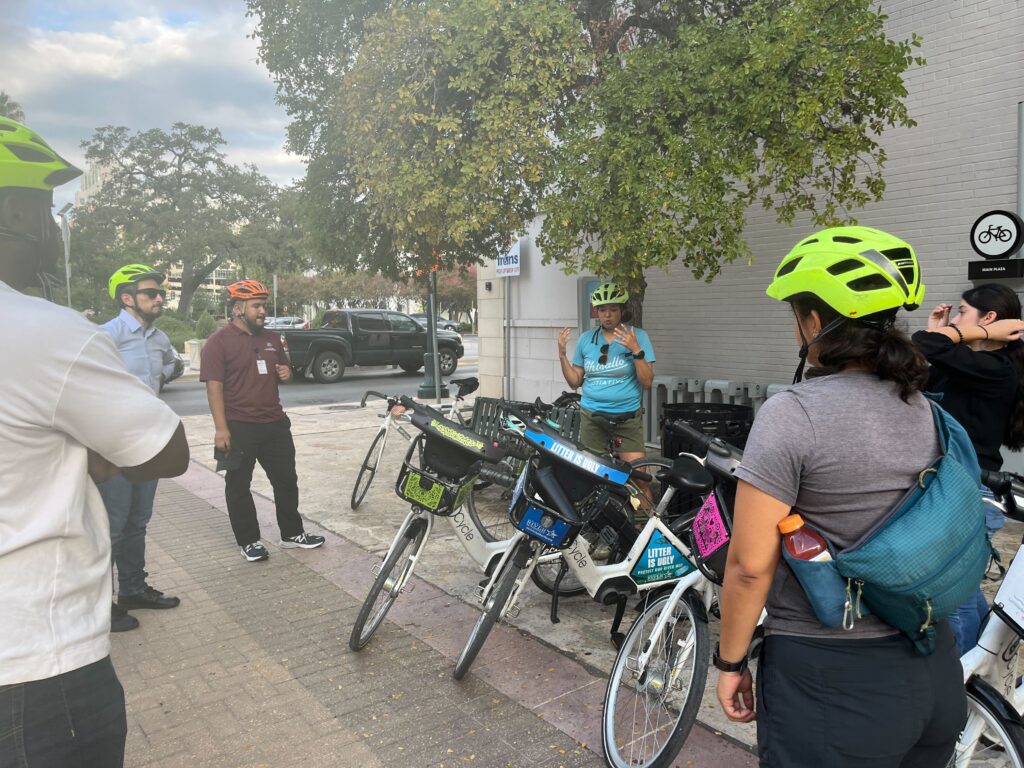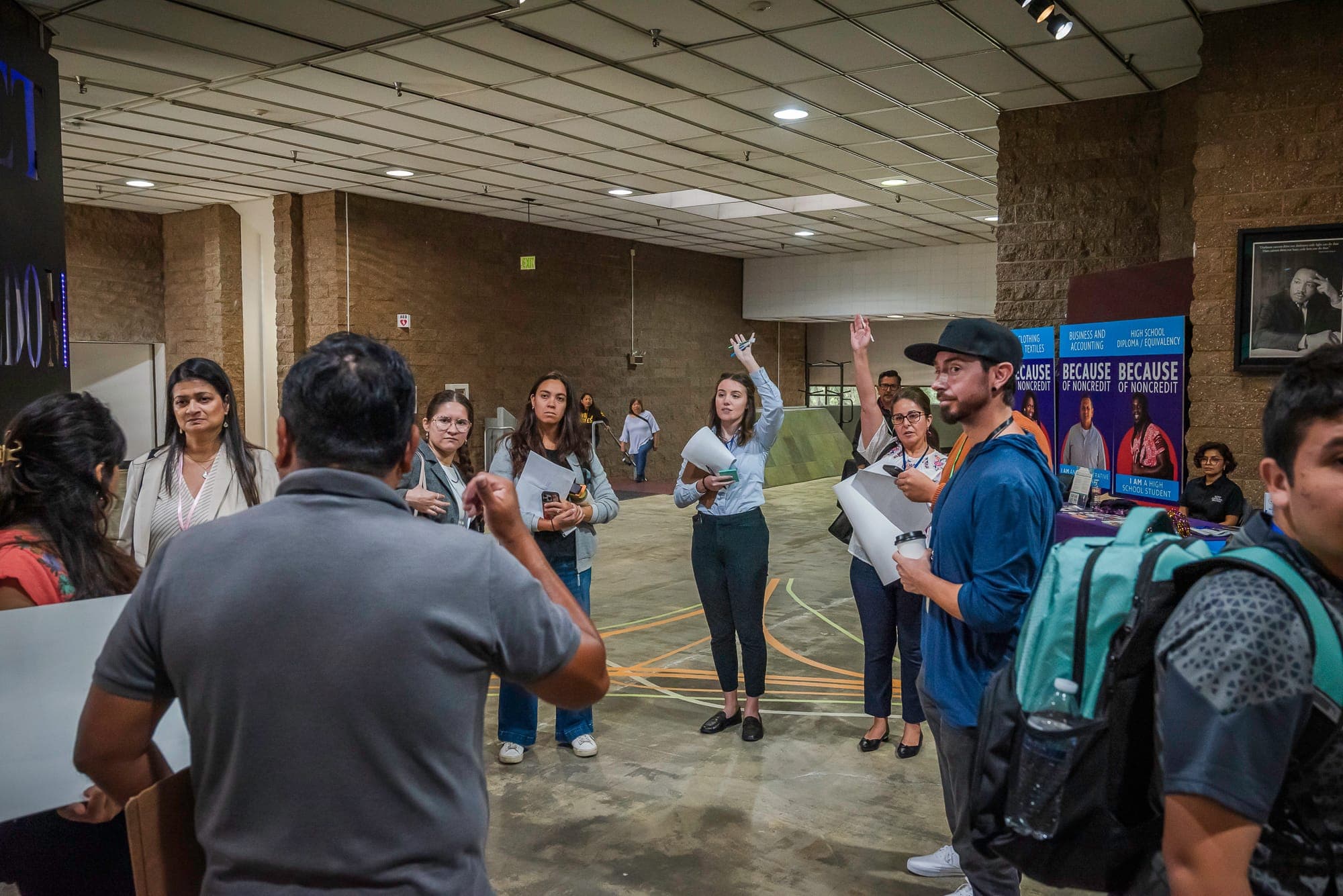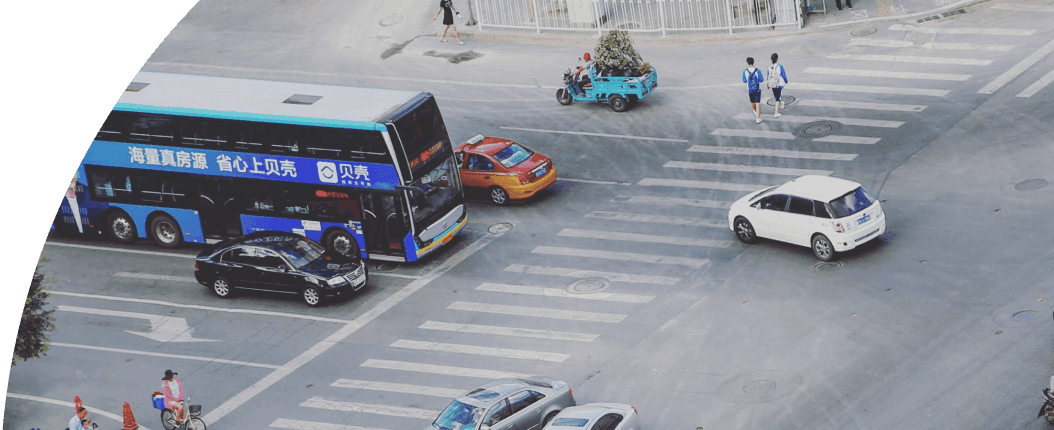
News
By Heidi Simon, September 29, 2025
Week Without Driving challenges people to go one week without driving to learn firsthand about the barriers people face outside of a car. Taking the bus, walking and biking, or paying for rideshare shows the hidden costs of car-centric infrastructure, which Week Without Driving shines a light on. The 2025 challenge takes place September 29 to October 5.
SGA’s new blog series on examining our built environment shows how you can use walk audits, bike audits, and accessibility audits as tools to keep advocating for these necessary changes, during Week Without Driving and beyond.
Many of us probably have fond memories of riding on a bike through our community as a kid or teenager. Bikes offer a freedom and independence for youth that is otherwise hard to achieve. But as adults, they can transform into important tools to identify necessary infrastructure changes, raise awareness, and bring joy back to transportation planning. All this, and more, is done through a bike audit.
A bike audit is similar to the other forms of audits we have covered recently. Whereas a walk audit or accessibility audit is primarily done by foot, a bike audit is done by – you guessed it – riding bikes. While some strategies will need to shift (it is admittedly hard to take notes while riding) many of the other elements found in other forms of audits will remain the same including the types of people to include, items to look for, and follow-up needed. Participants will need to be informed of the route beforehand and a briefing should be done to discuss rules for the audit such as how the group will stay together, who is in the lead, and any expected stops along the way.
There are several reasons a community should consider doing a bike audit. Ideally, it would be done in conjunction with some sort of project planning, whether it’s using an installed quick-build demonstration or touring a potential project site. It’s also a great activity to do as part of Bike to Work or Bike to School celebrations.
In short, a bike audit can:
- Identify needs to connect or improve the bike network. While a community might have a bike network, it is likely that it was done as part of multiple projects and/or using multiple types of design. A bike audit can identify which parts of the community are in need of bike infrastructure to reach key destinations or identify parts of the existing bike network that would benefit from increased protection (i.e. transitioning from painted bike lanes to bike lanes protected with bollards or other materials). Bike audits can also make the case for lowering speed limits or other strategies needed to make riders more safe and comfortable along the route.
- Expand outreach for existing or future projects. Some communities are fortunate enough to have the benefit of a local bike advocacy group. But even those communities might be missing out on the perspectives of those people who bike regularly but don’t consider themselves part of the bike community. A dedicated event like a bike audit can get those people out to connect with planners and provide feedback on their daily experience.
- Bike audits provide an opportunity for the community to see people biking. How often have we heard the refrain that “no one will use the bike lane”? A bike audit demonstrates to the general community that not only are there people who would use the bike lane, there are people who care enough about the bike infrastructure in their neighborhood to make it happen. It also recommits the city’s intent to create a safe and active place.
Smart Growth America recently conducted a bike audit in San Antonio as part of a workshop to support the city’s efforts in the implementation of its award-winning Complete Streets policy. We saw that it became an opportunity for city staff, especially those from the Public Works Department, to identify things that could be done better now or in the immediate future such as taking advantage of scheduled striping to evaluate maintenance for bike lanes. Participants noted the contrast between choosing to take part in the bike audit and the reality that many San Antonians travel this way daily because they have no alternatives. These observations underscored the urgent need for safer, more connected streets and will be a lasting reflection in days to come.

Want more examples of a bike audit in action? Check out our recap of a workshop in Durham, NC.
Related News

© 2026 Smart Growth America. All rights reserved
Site By3Lane Marketing












